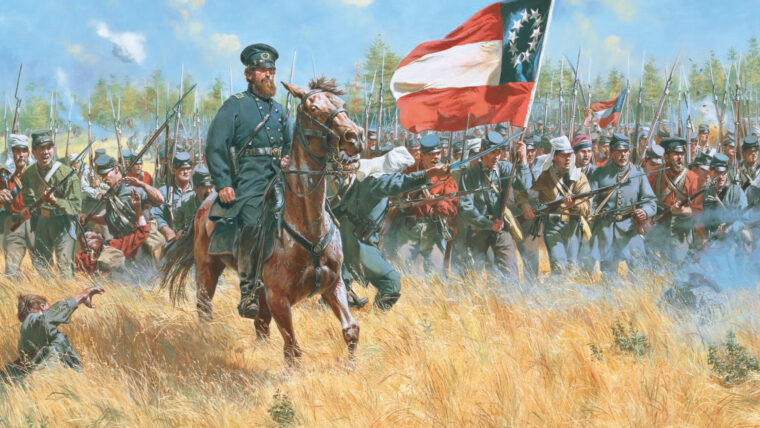
Abraham Lincoln
First Manassas: The Battle of Bull Run
By Earl EchelberryOn March 4, 1861, with war clouds threatening the land, Abraham Lincoln was inaugurated the 16th president of the United States. Read more
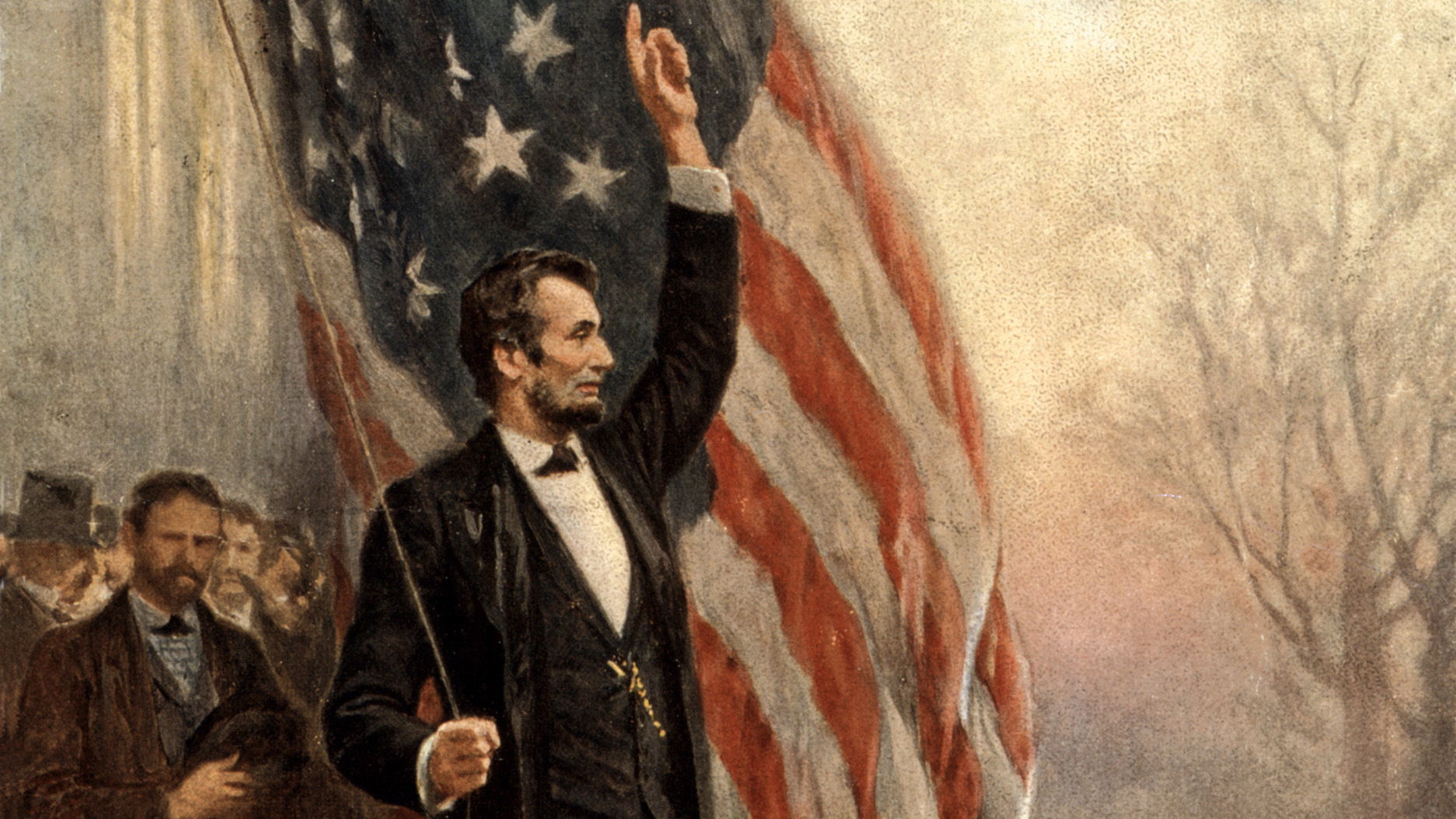
Abraham Lincoln served as the 16th President of the United States during the American Civil War. Abraham Lincoln was in office during perhaps the most critical time in the nation’s history and provided exceptional leadership. Lincoln is remembered as a man of wit and strategic vision. Abraham Lincoln’s Gettysburg Address is among the nation’s most treasured documents of freedom along with his Emancipation Proclamation, effective January 1, 1863, which freed slaves in territories in revolt against the United States. Abraham Lincoln was mortally wounded by assassin John Wilkes Booth on April 14, 1865, and died the following morning at the age of 56.

Abraham Lincoln
On March 4, 1861, with war clouds threatening the land, Abraham Lincoln was inaugurated the 16th president of the United States. Read more
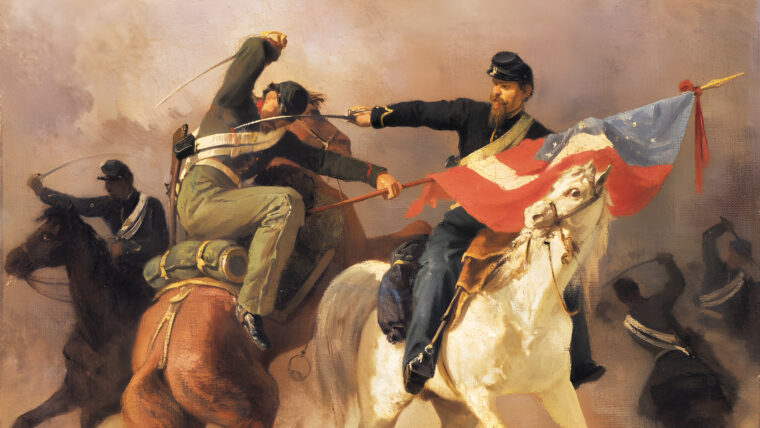
Abraham Lincoln
During the Civil War western Virginia was crucial to the Union. The region that lay west of the Shenandoah Valley and north of the Kanawha River held nearly a quarter of Virginia’s nonslave population when the war began in 1861. Read more
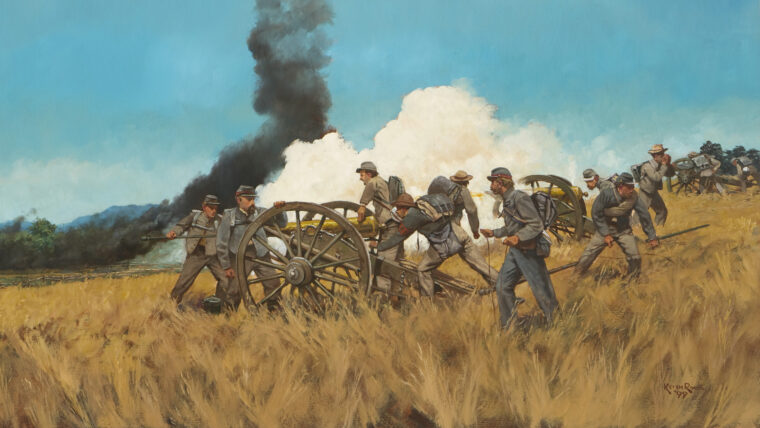
Abraham Lincoln
On September 7, 1862, Colonel Walter Taylor of General Robert E. Lee’s staff wrote to his sister: “The Yankee papers of the 6th exhibit a gloomy picture for our enemy. Read more
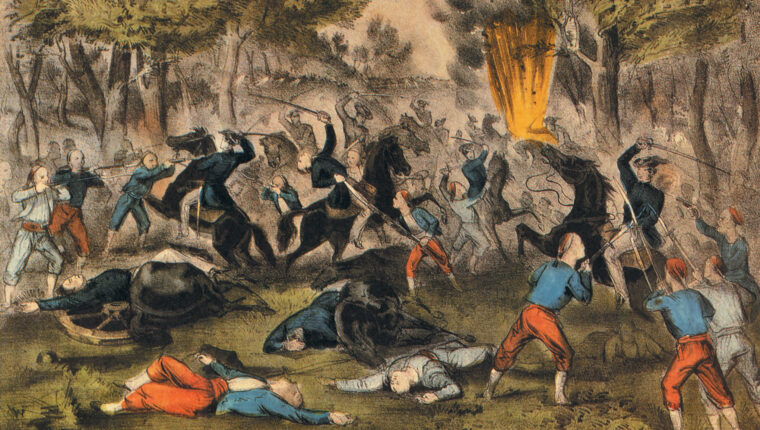
Abraham Lincoln
“But for you, there would have been no Battle of Bull Run.” When Confederate President Jefferson Davis made that blanket statement in the summer of 1862, he was not addressing Pierre G.T. Read more

Abraham Lincoln
On the morning of February 23, 1945, on the tiny Pacific island of Iwo Jima, a 40-man patrol gathered at the 5th Marine Division headquarters for their final briefing with battalion commander Lt. Read more

Abraham Lincoln
In 1864, the Civil War was raging across the United States. At the epicenter of the seemingly stalemated conflict was the vital Confederate stronghold at Petersburg, Va. Read more
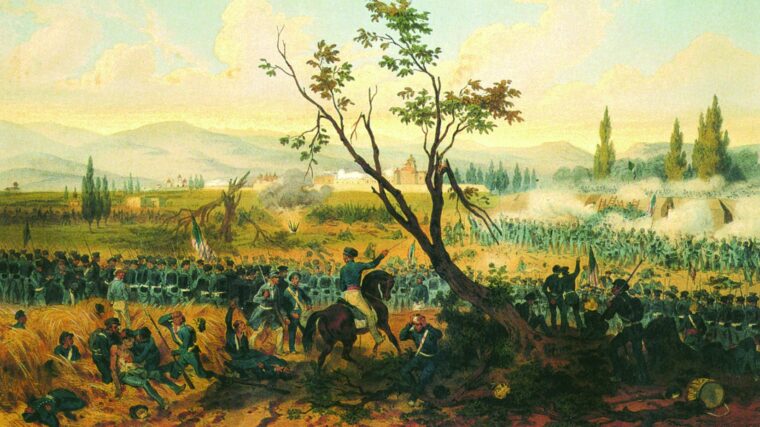
Abraham Lincoln
Men have been reporting their wars almost as long as they have fighting them. The first prehistoric cave drawings depicted hunters bringing down wild animals, and spoken accounts of battles, large and small, formed the starting point for the oral tradition of history. Read more
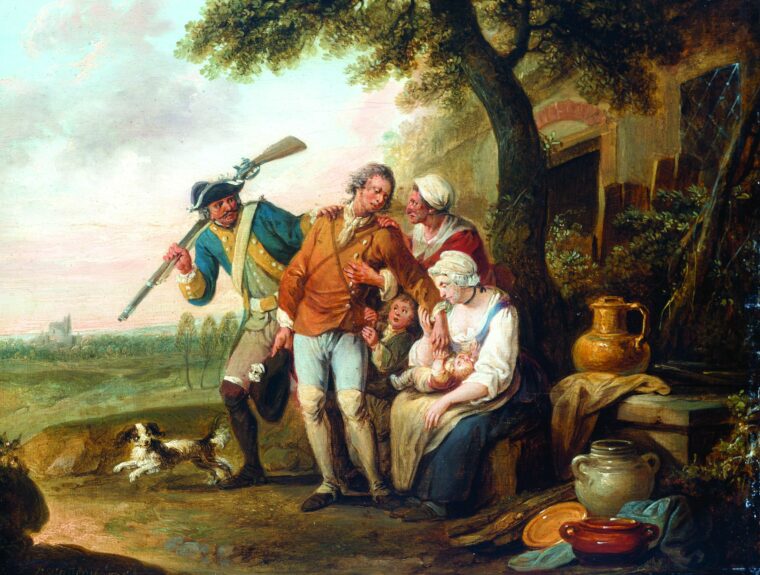
Abraham Lincoln
The call of a nation on its civilian population either to create a military force or to augment a standing army is virtually as old as civilization itself. Read more
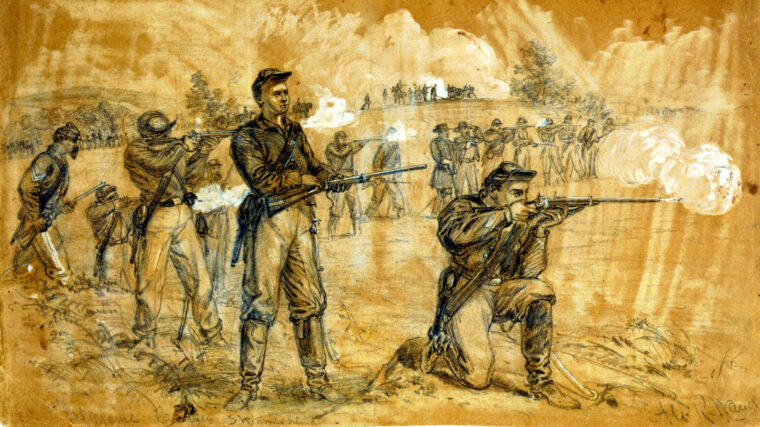
Abraham Lincoln
For the Federal government at Washington, D.C., the news from Tennessee was grim in late September 1863. The Union Army of the Cumberland, under Maj. Read more
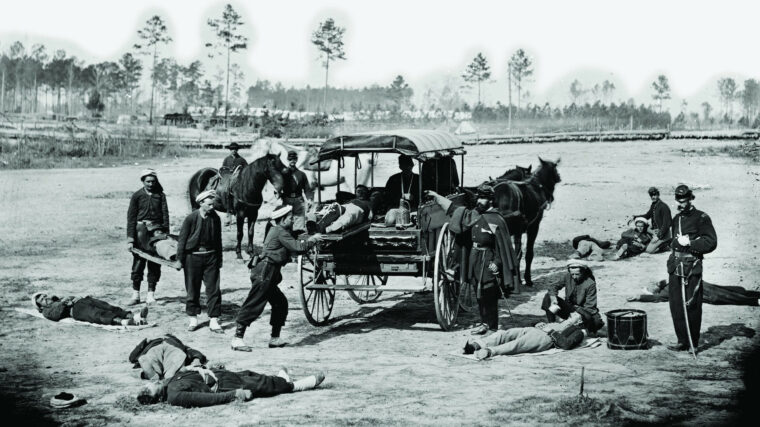
Abraham Lincoln
In the spring of 1861, a group of influential northern men and women, led by Unitarian minister Henry Whitney Bellows and social reformer Dorothea Dix, met in New York City to discuss the formation of a sanitary commission, modeled after the British Sanitary Commission established during the Crimean War, to provide relief to sick and wounded soldiers in the Union Army. Read more
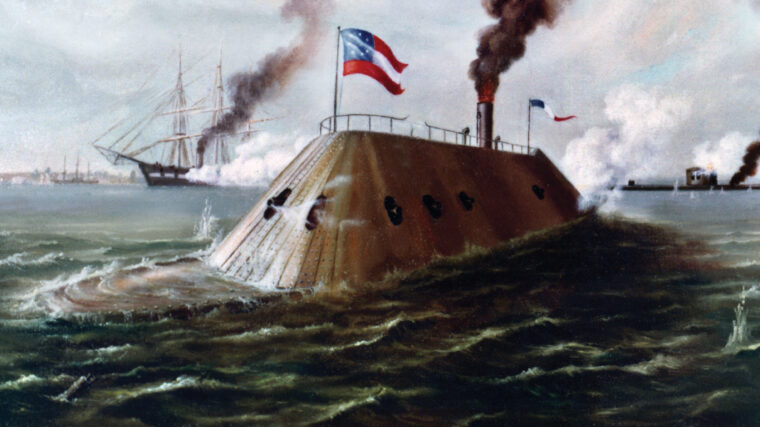
Abraham Lincoln
Smoke swirled amid the thunderous noise that roared from powerful Dahlgren guns and Brooke rifles. Thousands of spectators along the shore watched the two most dangerous warships in the world at each other at point-blank range. Read more
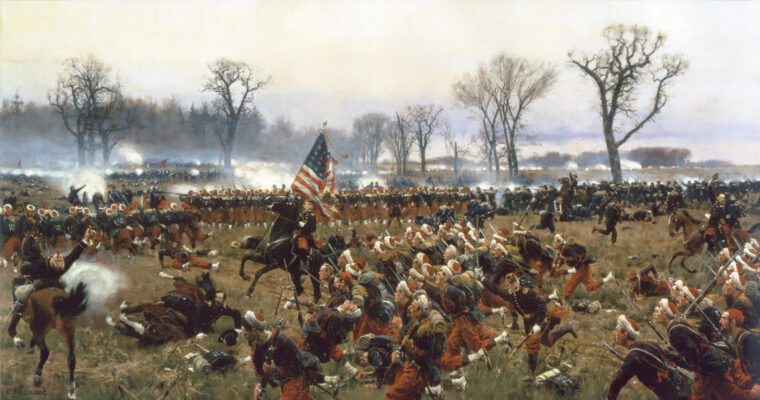
Abraham Lincoln
Word spread like wildfire through the camps of the Army of the Potomac during the second week of November 1862: “Little Mac” was out, “Old Burn” was in. Read more
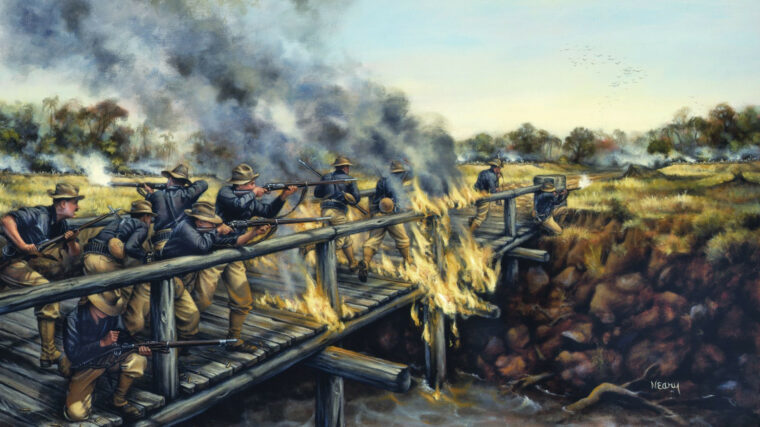
Abraham Lincoln
On August 3, 1864, near Atlanta, Georgia, Captain Henry Lawton of Indiana led a group of Union skirmishers in a charge against Confederate rifle pits. Read more
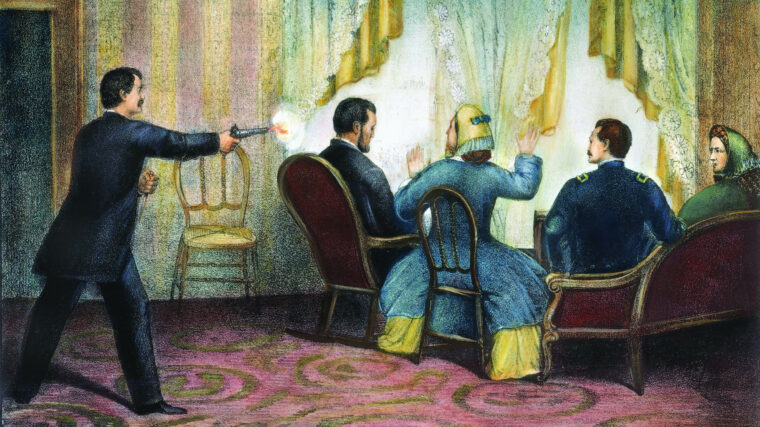
Abraham Lincoln
In the late hours of April 14, 1865, Secretary of War Edwin Stanton sat at a small table in the Petersen House across the street from Ford’s Theater in Washington, D.C. Read more
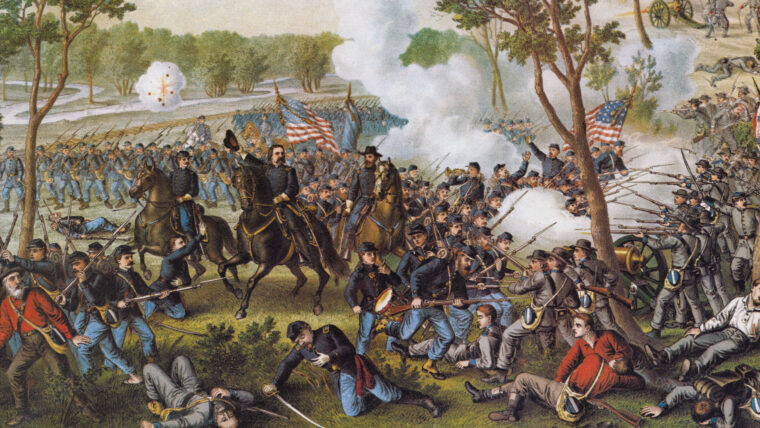
Abraham Lincoln
During the Civil War, the strategic importance of Vicksburg, Mississippi, was readily apparent to both the Union and the Confederacy. Read more
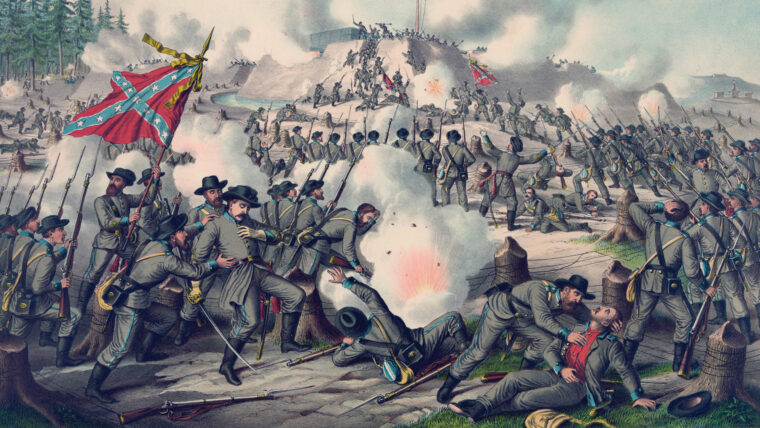
Abraham Lincoln
After the crushing Union defeat at the Battle of Fredericksburg on December 13, 1862, President Abraham Lincoln relieved Maj. Read more
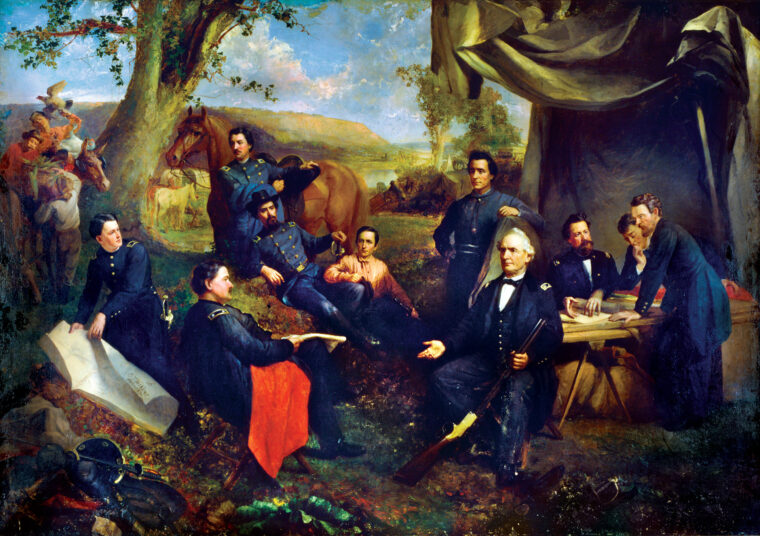
Abraham Lincoln
When the Civil War erupted, so many of Lisbon, Ohio-born Robert McCook’s large extended family joined the Union Army that the clan became known as the “Fighting McCooks.” Read more
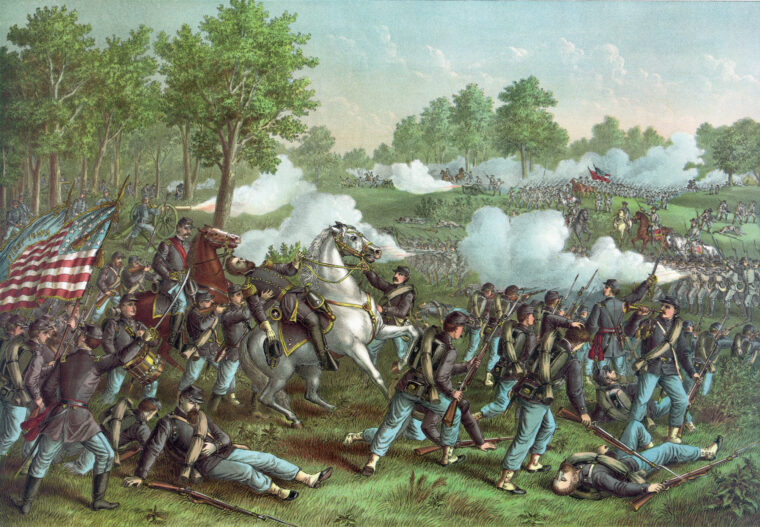
Abraham Lincoln
At the beginning of 1861, Missouri was in turmoil. A slave state since its inception in 1820, Missouri had grown increasingly tied to urban industry. Read more
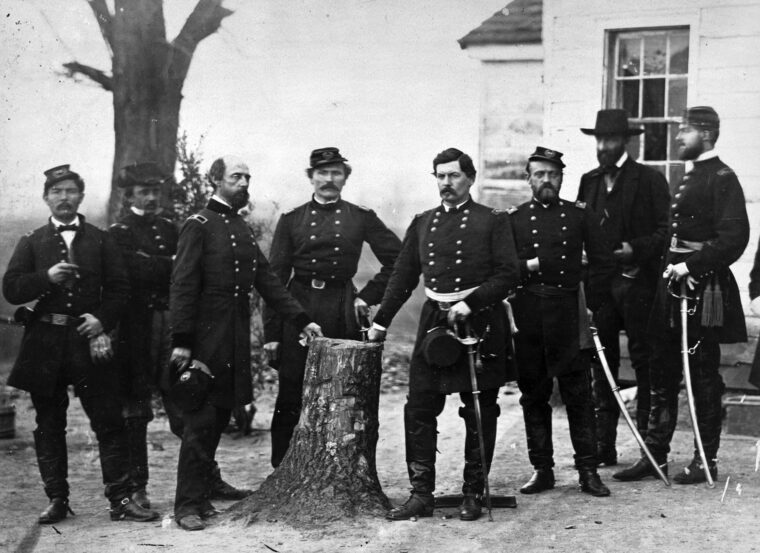
Abraham Lincoln
After an almost uninterrupted, four-month-long string of Union successes beginning in early 1862, followed by the advance of a 100,000-man enemy army to the eastern outskirts of its capital at Richmond, Virginia, the Confederacy suddenly found itself in a life-or-death struggle for its very survival. Read more
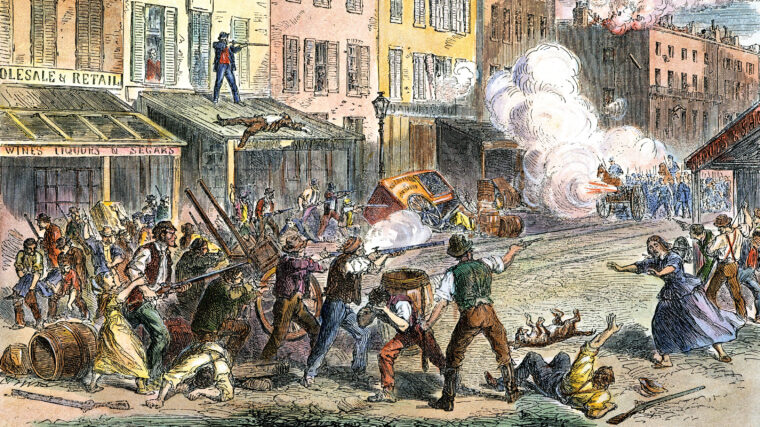
Abraham Lincoln
For four breathlessly hot days in mid-July 1863, New York City became the northernmost battleground of the Civil War. Read more